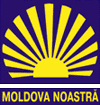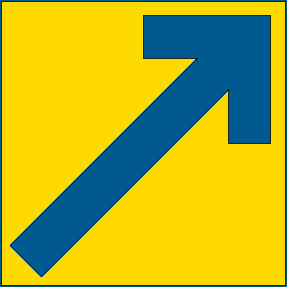Political alliance in Romania
 |
|---|
|
The Hungarian German Bloc (Romanian : Blocul Maghiar-German, BMG) was a political alliance in Romania.
 |
|---|
The Hungarian German Bloc (Romanian : Blocul Maghiar-German, BMG) was a political alliance in Romania.
The alliance was formed by the Magyar Party and the German Party in order to contest the 1927 general elections. It received 6% of the vote, winning fifteen seats in the Chamber of Deputies and one in the Senate, emerging as the third-largest bloc in Parliament. [1]
| Election | Votes | % | Assembly | Senate | Position |
|---|---|---|---|---|---|
| 1927 | 173,517 | 6.4 | 15 / 387 | 1 / 113 | 3rd |

Romania's political framework is a semi-presidential representative democratic republic where the Prime Minister is the head of government while the President represents the country internationally, signs some decrees, approves laws promulgated by parliament and nominations as head of state. Romania has a multi-party system, with legislative power vested in the government and the two chambers of Parliament: the Chamber of Deputies and the Senate. The judiciary is independent of the executive and the legislature. From 1948 until 1989, the Communist rule political structure took place in the framework of a one-party socialist republic governed by the Romanian Communist Party (PCR) as its only legal party.

The Our Moldova Alliance was a social-liberal political party in Moldova led by Serafim Urechean, former mayor of Chișinău. It merged into the Liberal Democratic Party of Moldova (PLDM) during April 2011.
This article gives an overview of liberalism and radicalism in Romania. It is limited to liberal parties with substantial support, mainly proved by having had a representation in parliament. The sign ⇒ denotes another party in this scheme. For inclusion in this scheme it is not necessary for a party to have actually labeled itself as a liberal party.

The Conservative Party was a conservative political party in Romania. Founded in 1991, approximately two years after the fall of Communism in Romania, originally under the name Romanian Humanist Party. From 2005 until 3 December 2006, the party was a junior member of the Government of Romania. The party adopted the name Conservative Party on 7 May 2005. Subsequently, a little bit more than a decade after, more specifically in June 2015, it merged with the Liberal Reformist Party (PLR) to form the Alliance of Liberals and Democrats (ALDE).

The Democratic Moldova Electoral Bloc was a centre-left electoral alliance of political parties in Moldova, led by Serafim Urechean.

Lothar or Lotar Rădăceanu was a Romanian journalist and linguist, best known as a socialist and communist politician.
In politics, a political alliance, also known as a coalition or bloc, is cooperation by members of different political parties on a common agenda of some kind. This usually involves formal agreements between two or more entire parties. An alliance is usually especially beneficial to the parties concerned during and immediately after elections – due to characteristics of the electoral systems concerned and/or allowing parties to participate in formation of a government after elections. These may break up quickly, or hold together for decades becoming the de facto norm, operating almost as a single unit. Alliances may also form prior to elections in an effort to reduce uncertainty following the election.

The Magyar Party was a political party in post-World War I Romania.

The National Liberal Party is a political party in the Republic of Moldova. It was founded in 1993 but temporarily disappeared through political amalgamation in 2000 before being refounded in 2006.

The Socialist Party of Labour was a left wing-nationalist political party in Romania. The party was labelled as neo-communist. It was founded on 16 November 1990. The chairman of the party was Ilie Verdeţ, former Communist Prime Minister between 1979 and 1982, under dictator Nicolae Ceaușescu.

Parliamentary elections were held in Moldova on 28 November 2010 after parliamentary vote failed to elect a President for the second time in late 2009.
A bloc party in politics may refer to a political party that is a constituent member of an electoral bloc. However, this term also has a more specific meaning, referring to non-ruling but legal political parties in an authoritarian or totalitarian regime as auxiliary parties and members of a ruling coalition, differing such governments from pure one-party states such as Nazi Germany and the Soviet Union, although such minor parties rarely if ever constitute opposition parties or alternative sources of power.
The Democratic Union Party was a political group in Romania, one of the political forces which claimed to represent the ethnic Romanian community of Bukovina province. The PDU was active in the wake of World War I, between 1919 and 1923, having for its leader the historian and nationalist militant Ion Nistor. It was formed by Nistor and other activists who wrote for the regional periodical Glasul Bucovinei, and, as a consequence, the party members were commonly referred to as Glasiști ("Glas-ists").
General elections were held in Romania in June 1931. The Chamber of Deputies was elected on 1 June, whilst the Senate was elected in three stages on 4, 6 and 8 June. The result was a victory for the governing National Union, an alliance of the National Party, the National Liberal Party, the German Party, the Agrarian Union Party, the Vlad Ţepeş League, the Agrarian League and several other parties. The Union won 289 of the 387 seats in the Chamber of Deputies and 108 of the 113 seats in the Senate elected through universal vote. The five seats won by the Communist-dominated Peasant Workers' Bloc were ultimately invalidated by the new Parliament.
Parliamentary elections were held in Romania on 28 March 1948. They were the first elections held in the Romanian People's Republic, proclaimed by the Communist-dominated legislature after King Michael abdicated in December 1947.

The Party of Democratic Forces was a political party in Moldova.
The Socialist Workers Party of Romania, later renamed the Independent Socialist Party of Romania, was a political party in Romania. The party was founded in Bucharest on 15 July 1928, as a leftist splinter group of the Social Democratic Party, formed by a minority that opposed the cooperation with the National Peasants' Party.

The People's Democratic Front was an electoral alliance in Romania from 1944 to 1968, dominated by the Romanian Communist Party (PCR). It formed the government of Romania from 1946 to 1968.

Opposition Bloc, formerly called Opposition Bloc — Party for Peace and Development until June 2019, was a Ukrainian political party that was founded in 2019. On 8 June 2022 the party was banned in court. This decision was not appealed, so on 25 July 2022 the party ceased to exist.

The Electoral Bloc of Communists and Socialists, also known as the Bloc of Communists and Socialists, is a communist and democratic socialist political alliance in Moldova formed in May ahead of the 2021 Moldovan parliamentary election. Its members are the Party of Communists of the Republic of Moldova (PCRM) and the Party of Socialists of the Republic of Moldova (PSRM).